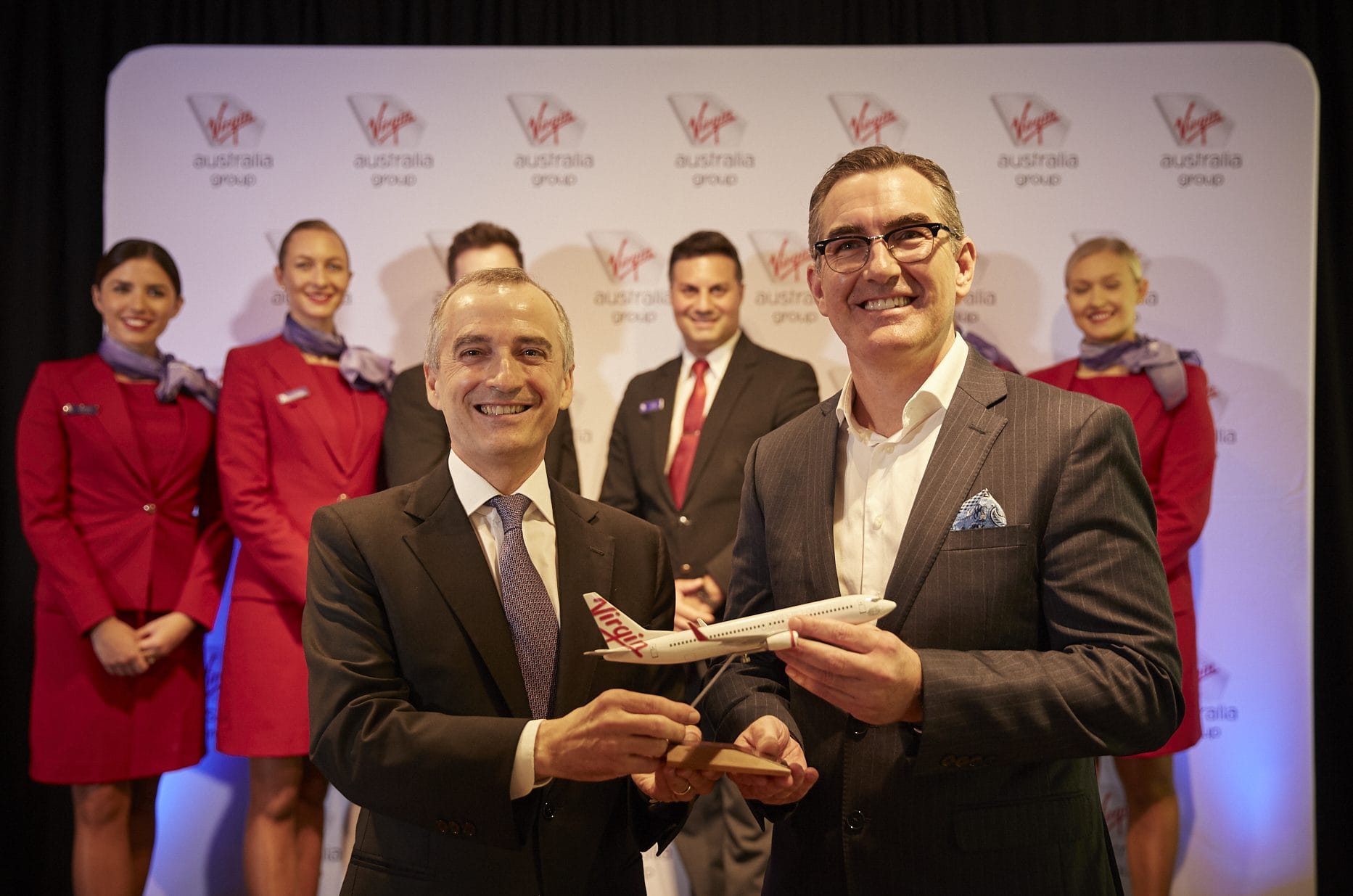New Virgin Australia Will Appear the Same, But Operate Differently, CEO Says
Share

While passengers flying with the new Virgin Australia won’t notice much difference, there will be changes behind the scenes, including simplification of the business model and resetting of the cost base, according to CEO Paul Scurrah.
The restructured Virgin Australia, owned by US-based Bain Capital, intends to be its “own version of an airline,” CEO and managing director Paul Scurrah told delegates at the virtual CAPA Australia Pacific Aviation Summit last week. Unlike the old Virgin Australia, under Bain the airline will make sure it competes in a profitable way rather than a “head-to-head battle” with Qantas and Jetstar.
“We need to make sure where we do compete, we compete in a market where we know we can we can make money,” Scurrah stressed. He expects the airline to provide the “best corporate value of any airline in the country,” but will no longer “chase big corporate accounts at all costs.”
On September 4, Virgin Australia creditors approved the acquisition of the airline by Bain, with the transfer of shares expected to be completed by October 31. The airline entered voluntary administration in April when its already dire financial situation was compounded by the COVID-19 crisis.
Under Bain, the airline will prioritize its customers and make sure it competes in a profitable way rather than a “head-to-head battle” with Qantas and Jetstar.
The new Virgin Australia will not have a label – low-cost carrier, full-service carrier or a hybrid – but will focus on simplification of the business, Scurrah said. The airline is renegotiating contracts with most of its suppliers. “We had some onerous contracts that had quite a few years to run out with regards to a number of onboard offerings that we have and we’ve been able to reset those,” Scurrah said, without naming any of the suppliers or products.
Virgin Australia will operate an all-Boeing 737 fleet with a two-class layout. The airline will continue to have a series of high-quality lounges and its Velocity frequent flyer program, consisting of 10 million members, will remain intact- the latter is one of the carrier’s greatest assets, according to Scurrah.
People won’t see a lot of difference to the product on the outside, but the resetting of the cost base and simplification of the business model will be the biggest difference, Scurrah explained. “If you strip back the loss-making parts of our business, we still have a similar-looking product [as before],” he added. By focusing on the routes that were previously making money, Scurrah is confident Virgin Australia will be “a very profitable airline,” providing “very good value” to corporate, leisure and VFR markets.
The airline will operate anywhere between 30 and 60 737s over the next 12 months, eventually increasing to a fleet of 75 aircraft once demand returns. “When we hit 75 is anyone’s guess,” Scurrah admitted. The airline will no longer operate ATR turboprops, Boeing 777s, Airbus A330s or Airbus A320s. A new widebody type will be selected for international services once the market returns.


